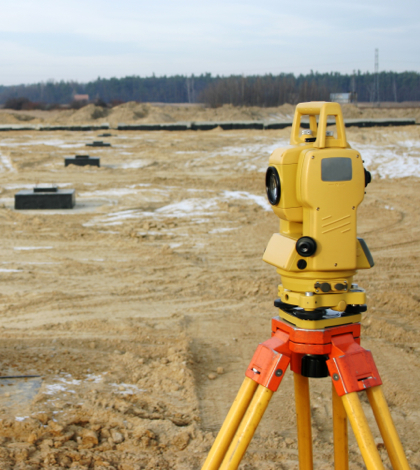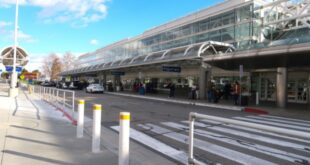The Planning Commission said yes last week to the World Logistics Center, but the 40.6-million-square-foot development still must be approved by the City Council. If the council says yes, the project’s opponents can take their case to court, and that could last awhile.
Moments after the Moreno Valley Planning Commission on Tuesday approved the massive World Logistics Center, one of the project’s supporters called out, to no one in particular, “one down, one to go.”
That was an acknowledgement that the 40.6-million-square-foot warehouse-distribution project must still be approved by the City Council before developer Highland Fairview can begin moving dirt and tilting up concrete walls.
Perhaps a better assessment would have been “one down, two to go.” That’s because there’s a good chance the project will end up in court, even if the council eventually votes 5-0 in its favor.
The sheer size of World Logistics Center – at build out it will be large enough to cover approximately 700 football fields – has engendered opposition from residents who are concerned about the extra pollution and traffic the project would create.
Those environmental issues are spelled out by the South Coast Air Quality Management District in a 23-page report the agency e-mailed last week to the city’s Community and Economic Development Department.
At the top of that list is insufficient management of the pollutants that would be generated by the nearly 68,000 vehicle trips that would pass through World Logistics Center on a typical day.
“Despite [a] substantial air quality impact, the proposed mitigation from this project does not include all feasible measures to reduce impacts,” the report stated. “It is for these reasons that we are disappointed that this project does not propose more measures to mitigate its air quality impacts. This project can and must do more.”
Several commission members express similar concerns.
Commissioner Jeffrey Sims was particularly concerned about traffic mitigation, and noted that no penalties have been established for tenants whose trucks violate emissions standards.
All of those issues leaves the World Logistics Center wide open for a lawsuit, one that could keep it in court for months, or even longer, said Kim Snyder, president of Prologis’ southwest region.
“It’s such a large, transformational project that I could see it ending up in litigation, although it’s difficult to say for how long,” said Snyder, whose Prologis territory includes Riverside and San Bernardino counties. “There are problems with the environmental impact report, especially the CEQA [California Environmental Quality Act] part of the report. I think the city knows that.”
Snyder is familiar with logistics projects in Moreno Valley getting tied up in court. In January, Prologis won approval of a four-building, 1.3-million-square-foot industrial project that, like World Logistics Center, is to be constructed on the city’s east side.
That project is now tied up in court, having been opposed by many of the people who are battling the World Logistics Center.
Aldi, the grocery store chain that is preparing to enter the Inland Empire, had its 800,000-square-foot warehouse-distribution project in Moreno Valley held up for a time by litigation, but that structure is now close to being completed, according to city staff.
“It looks to me like the people who are against [World Logistics Center] are playing it pretty close to the vest,” Snyder said. “It’s hard to say what’s going to happen.”
The City Council is scheduled to take up the matter July 15.
Iddo Benzeevi, president and chief executive officer of Highland Fairview, declined to speculate on whether the project – which would take up about one-tenth of Moreno Valley’s developable industrial land – might ultimately end up in court.
“I really don’t know what they’re going to do,” Benzeevi said shortly after the commission voted 6-1 in favor of the mega-project. “We’re just happy that we won, and we’re taking it one day at a time.”
Should they be defeated at the city council and then choose to file a lawsuit, the opponents of the World Logistics would be facing an uphill battle, one that would be long, costly and difficult to win.
Even as they were acknowledging the flaws in the World Logistics Center’s environmental studies, the commissioners praised the proposed development to the hilt, mostly for the estimated 20,000 jobs it will bring to the city and the $2.5 billion in economic activity it will generate.
“Our ultimate goal should be to attract as many jobs as we can,” Commission Chairman Brian Lowell said at the end of Tuesday’s meeting, which lasted more than five hours. “Yes, there are some environmental problems associated with this project, but the economic benefits far outweigh those concerns.”
More traffic would be created during the next 20 to 30 years if the city were to let regular development happen where World Logistics Center will be built, Lowell said.
If Moreno Valley doesn’t get the jobs created by the World Logistics Center – however many that turns out to be – the jobs likely will end up in some other Inland city, Commissioner Meli Van Natta said.
“These are not the old warehouse jobs that we’re used to seeing, where people just move boxes around,” Commissioner Meli Van Natta said. “These are skilled, high-tech jobs that pay very well.”
Commissioner Patricia Korzec cast the lone dissenting vote, saying she feared Moreno Valley is becoming a “city of warehouses.”
Korzec noted that the World Logistics Center will take up about one-tenth of the land designated for industrial development in Moreno Valley.
Kathleen Dale, a foe of World Logistics Center, said there are several “high-powered environmental attorneys “ in the Inland area who would be willing to take up the opponents’ cause should the council ultimately approve the project.
“Aldi, Prologis and Skechers were all approved by the council, and all three of them were sued,” Dale said in reference to three major logistics projects in Moreno Valley. “I think it’s reasonable to assume that would happen with World Logistics Center.”
 IE Business Daily Business news for the Inland Empire.
IE Business Daily Business news for the Inland Empire.


